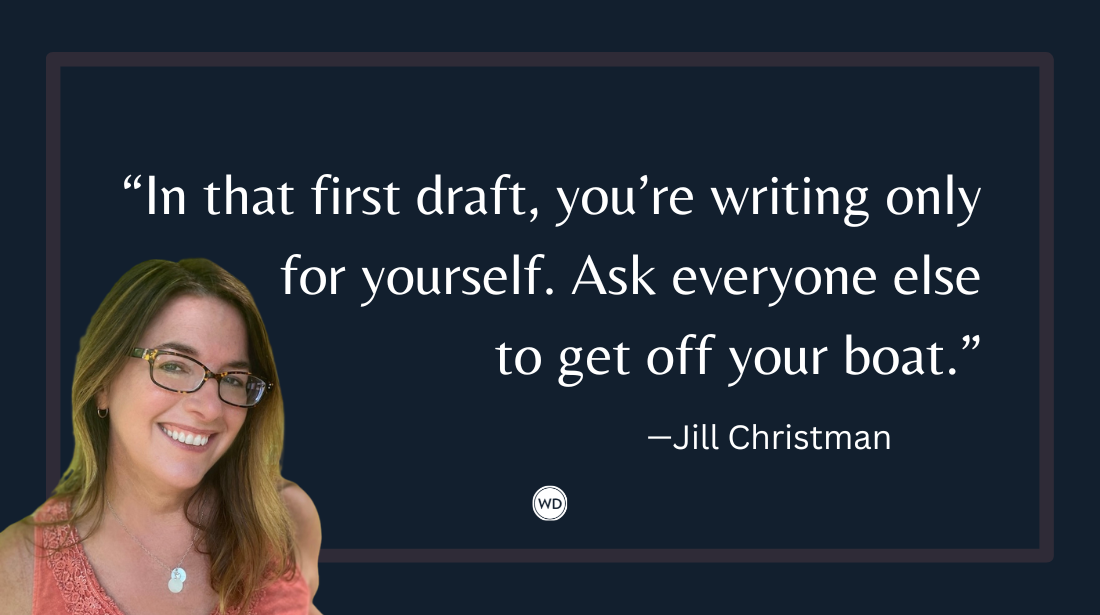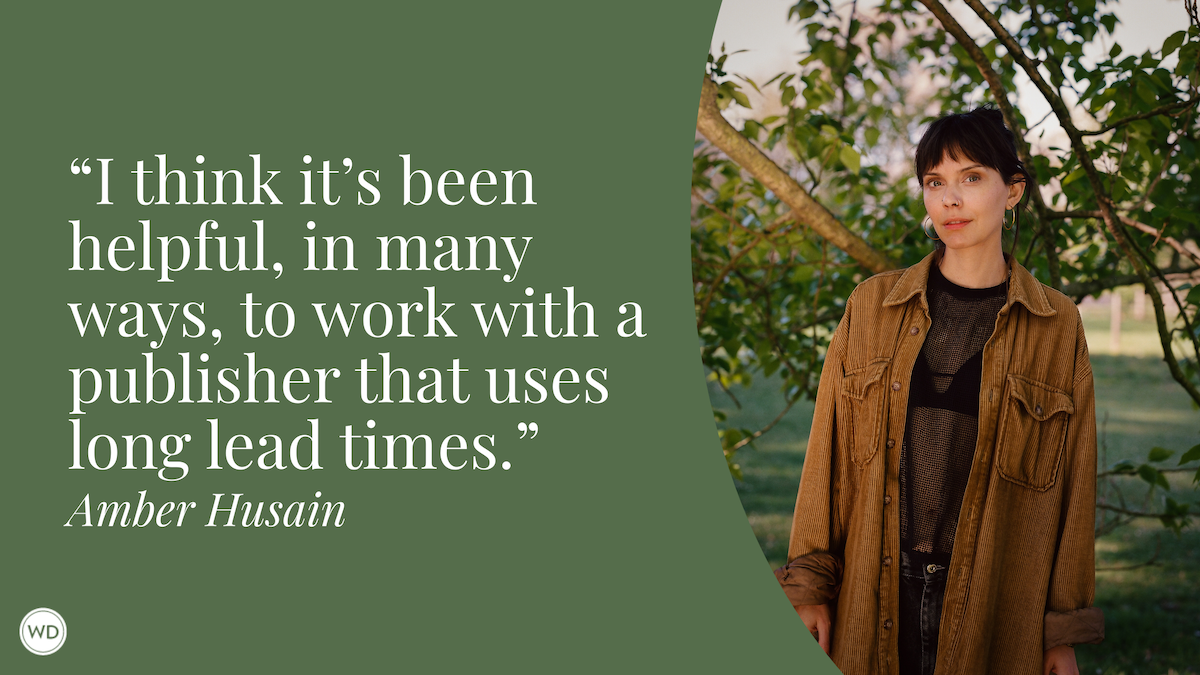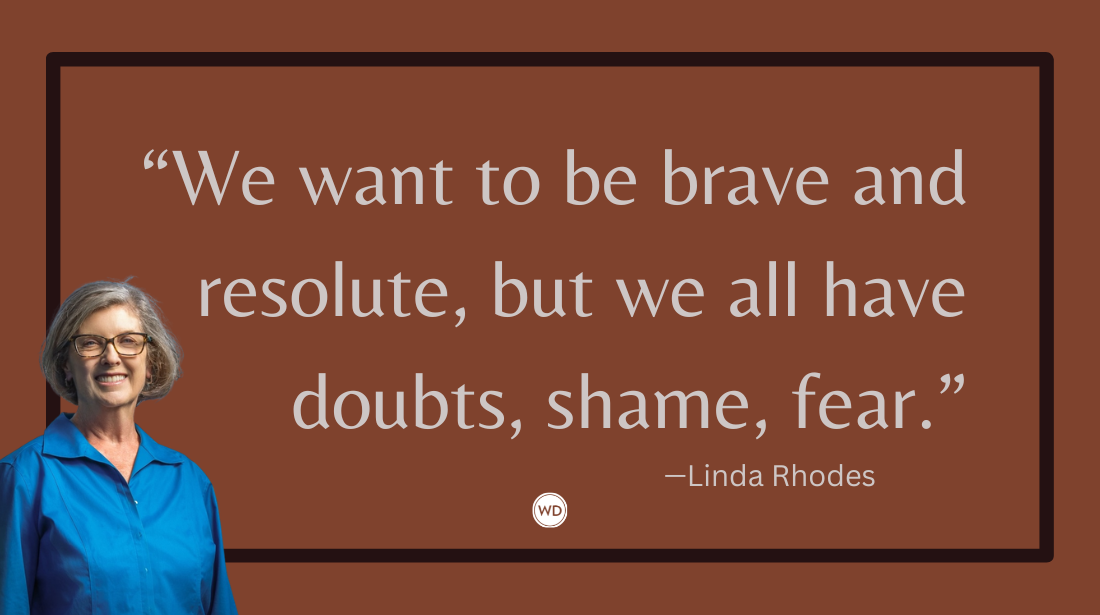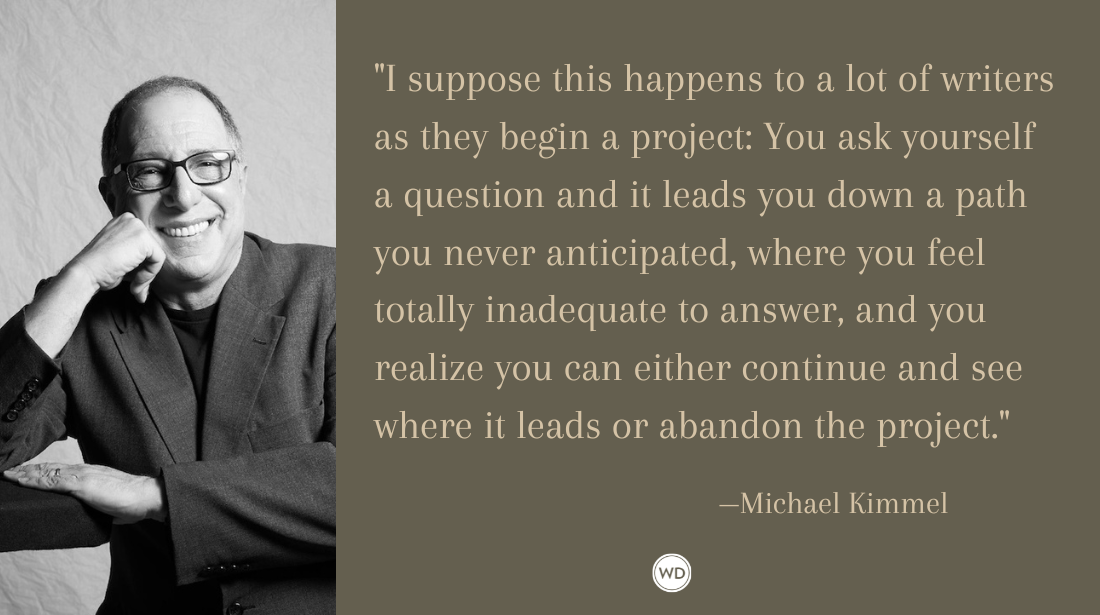In Praise of Writing the Small Story: Everyday Essays With Big Impact
Author Sarah Fawn Montgomery shares the importance of remembering and writing small everyday nonfiction stories and personal essays.
“I haven’t lived a life worthy of a story.”
“Nothing extraordinary has ever happened to me.”
“I don’t think anyone would be interested in reading about that.”
These are some common hesitations shared by nonfiction writers worried that they have not had remarkable enough lives to engage readers’ attention. Yet most of our lives are not comprised of a series of extravagant events, but rather a compilation of small moments that nonetheless have large personal and political impacts.
My latest book, Abbreviate, is a small collection of small essays that examines big ideas, like how the injustice and violence of girlhood leads women to accept and even claim small spaces and stories. Though the essays in this collection focus on everyday experiences—probing the girlhood play of Polly Pocket and planetariums, strobing with a sleepover blacklight illuminating teenage magic, and ricocheting with the regret and rage of adult women whose lives have been constellated by harm—it is this commonality that reinforces the significance of the stories.
When I began writing Abbreviate, I wanted to write stories from my childhood, adolescence, and early adulthood that others deemed too small to be significant. These were the childhood experiences I tried to tell adults, only to be told little girls should be seen and not heard. These were the stories from my teenage years that shaped me irrevocably, but were deemed too commonplace to warrant much attention. And these were the experiences from my adulthood shared by many women yet silenced by a sexist society. Growing up, I shared many experiences with girls and women around me, as well as the experience of being told our stories were too small to matter. And so, it was these small stories that I wanted to praise.
~
Many readers of nonfiction turn to the genre looking for connection. While we certainly read to learn about lives unlike our own, we also read for the familiar, to see something of ourselves reflected in the pages, to witness a world that makes us feel a sense of unity rather than isolation. There is an inherent power in engaging with a stranger’s story and thinking, “Yes, I’ve felt that way too” or “I thought I was the only one.” We read nonfiction to feel a sense of wholeness, to feel as though we are a part of the larger human experience.
If we only focus our work on the extraordinary, however, we risk losing this quality. We risk alienating our readers. We risk missing the point of the genre entirely—the poignancy and power of the everyday. And we risk alienating ourselves from the narratives of our own lives, thinking instead that we are somehow not living or writing well if we are not exceptional.
Part of the craft of writing creative nonfiction is retraining ourselves to notice and appreciate small moments in our lives. Contemporary culture tends to favor extremes in news headlines, social media, and movies, so it can seem as though storytelling requires dramatic events. But there is as much narrative tension in the small moments of our lives as there is in these extremes, perhaps even more so, for what is higher stakes than the truth?
Learning to cultivate a sense of curiosity about small daily moments can begin anytime. Going through old photos, listening to music, reading old letters or emails, or reminiscing about particular periods in your life will naturally produce them. You do not need epiphanic revelation or a sudden stroke of artistic inspiration to locate a meaningful memory, image, or emotion. If a particular moment in your life, however small, is one that brought you pleasure, heartache, intrigue, or simply stands out strongly in your memory, then this is a good sign that it will do the same for readers. What matters is your willingness to notice, your belief that the minutia of your life matters, and your ability to reflect on what larger truths these small stories reveal.
For example, while Abbreviate contains extreme events, the majority of moments throughout the collection are brief flashes. Dramatic events like domestic violence, sexual assault, and abuse by authority figures juxtapose with small events like childhood games, teenage school projects, and adult trips to museums. The large events are certainly important to the narrative, but the smaller moments are equally important, perhaps even more so because of their unexpected narrative weight. While it was easy to reflect on significant moments of narrative tension in my life, it was more powerful to reflect on forgotten moments, and I found that lingering memories of elementary school classrooms and middle school dances gave way to more varied memories with greater thematic significance.
When we write about extremes, there’s often little opportunity for thematic surprise. Writing about my middle school principal running off with a student, for example, expectedly leads to outrage, shock, violation. But writing about small moments provides narrative flexibility and many opportunities for thematic exploration. Writing about building a life-size model of a refrigerator for a middle school project, for example, foreshadowed the disordered eating many girls I grew up with experienced later as adults. Surprising yourself with the power of the small will naturally surprise your reader.
Small moments can also lend themselves to creating stronger thematic connections. For example, when writing about domestic violence, which eventually led to my aunt’s husband running over his ex-wife, an image of my aunt teaching me to play with stomp rockets, launching them up into the air and far away to safety provided more interesting images, metaphoric opportunity, and thematic resonance, than writing about my uncle directly. Since I was a child when this event took place, it also makes sense to write about childhood memories of play, rather than the adult events I didn’t fully understand at the time. When reflecting on my uncle, the memory of his violence always surfaces, but it was remembering my childhood play that allowed me access to writing about this difficult subject and with a more nuanced approach.
Once you have determined which small moments were impactful, it is then time to use them thematically. Remember, readers engage with nonfiction not simply for the plot, but for a larger reflection about the human experience, so it is not enough simply to share specific memories. Instead, you must work to make greater meaning beyond these memories, to use these recollections as the impetus for or the lens through which you create deeper reflection.
Many times, the small experiences or images that you have chosen to write about will lead you directly to larger themes. You might find that writing about quilting with your grandmother as a child lends itself to themes about piecing together your family history as an adult. You might find that writing about playing with dolls as a girl lends itself to larger themes about motherhood. Moving beyond the memory can be as simple as asking yourself what this memory taught you about the world or how this memory foreshadowed what was to come later in your life.
Other times, you might find that your themes come first. When we begin with themes rather than plot, it can sometimes be difficult to know how best to illustrate these themes. But turning to the small moments in our lives can give us a sense of direction. For example, in Abbreviate, I wanted to examine the rise of sexism in America, as well as the ways women have been erased from history. I did so by focusing on small moments from my past like how elementary boys learned bullying techniques from adult men or the ways a girlhood visit to a planetarium revealed few women constellating the sky. Reverse engineering allows us to sift through the card catalogs of our minds to locate specific examples that might illustrate the larger points we are trying to make. Remember, these memories don’t need to speak directly to the themes. Sometimes it is best if they provide emotional weight, rather than direct commentary.
To create deeper meaning from your memories, you can also either implement direct comparisons or utilize juxtapositions. You might share specific small moments to reflect directly on a related topic. For example, in Abbreviate, I share stories of being required to apologize, smile, or hug people even when I didn’t want to in order to reflect on the ways girls and women are taught to conceal their true emotions for the ease of others. Direct comparisons strengthen both the specific memory and the larger thematic weight, allowing readers to fully engage with each.
On the other hand, you can also create deeper meaning from your memories by using stark contrast. By juxtaposing a specific memory with a seemingly unrelated larger theme, you employ the element of surprise for readers, moving the reading experience beyond expectation and toward originality. For example, describing learning to play Dungeons & Dragons in the wake of our current political climate allowed me to reflect on the ways men seek to control even women’s minds and imaginations. Contrast allows both you and your reader to move beyond the expected, and to be reminded of the power of the genre and the ability of our lives to move in surprising ways.
~
“I can’t believe I never noticed that before.”
“Even after all these years, I still remember that.”
“I never realized how much that tiny moment impacted me.”
Growing up, many of the girls and women around me believed their stories and selves too small. And yet, if we had only shared our small stories, we might have understood their significance in our lives and in the lives of others, might have seen our connection, might have realized our individual and collective power. By claiming space on the page, we might have learned to claim space in the real world, might have demanded more for ourselves and each other, might have stretched ourselves in search of all that we desired and might one day achieve. In recognizing the power of the small, we might have recognized our ability to tell stories larger than we ever imagined.
Check out Sarah Fawn Montgomery's Abbreviate here:
(WD uses affiliate links)









